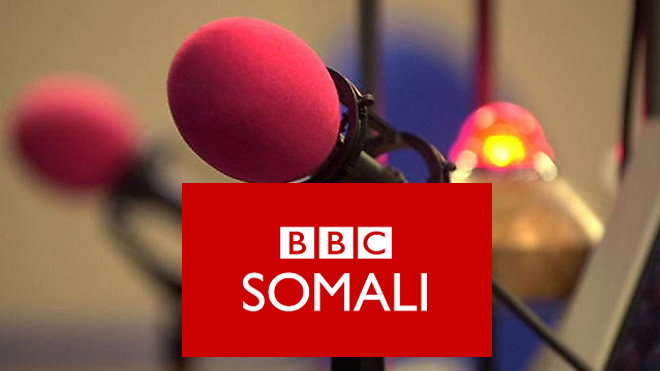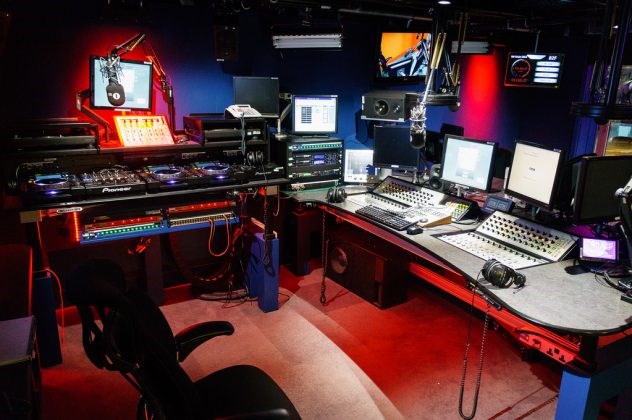ALLEASTAFRICA
By Judy Maina, [email protected]
Friday, September 23, 2016

According to the station, it provides a key link between those in Somalia and those elsewhere
NAIROBI – For the BBC Somali service, decades of outstanding reporting has earned for it an unrivaled reputation and credibility among the ethnic-Somali communities around the world, thanks to lack of competition and veteran journalists equipped with sufficient knowledge and experience for the Somali language and culture.
With its excellent appraisal, the radio, one of the world’s most reputed radio stations broadcasting in Somali had enjoyed a top rating, becoming a household name for millions of Somalis across the world since it was Established in 1957.
In recent years, the London-based radio had expanded its operations, opening its second largest bureau in Nairobi. According to sources at the BBC, the department has hired at least 15 journalists, nearly all Somali-Kenyan journalists in the past three years.
However, a year-long investigation by Alleastafrica discovered that despite claims that the radio provides journalists with “world-class opportunities to learn and develop inside the BBC.” The radio practices employment prejudices towards qualified Non-Kenyan Somali journalists trying to secure jobs at the BBC Somali department
The extensive investigation has also exposed that qualified non-Kenyan Somali journalists have been denied of employment opportunities at the BBC because of a lack of Kenyan work-permits down to their nationalities as opposed to the international labor which requires employers to secure work permits for their new and old employees.
One Kenyan-based Somali journalist makes a good example for the employment discrimination at the BBC. The prominent Somali journalist who asked not to be named had applied a vacant broadcasting position at the BBC Somali service bureau in Nairobi in 2014 having attended a previous interview.
Owing to his qualification and expertise, one would hardly think his application would be rejected. However, after three months he held his hopes in the offing, he was contacted by the BBC recruitment team, bringing a startling answer “in response to concerns of fair recruitment process previous test results were discarded.” The email from the BBC said as seen by Alleastafrica.
Stunned by the response, the well-known Somali reporter has protested, forcing the BBC to make a new assessment which was scheduled to take place on December 2014. In the meantime, he was subsequently contacted by a member of the BBC panel (who interviewed him) to inform him that his application was successful.
It would have made a good news for him, but bad news never stopped to appear in his email inbox. Even though he was finally offered the job with the full knowledge of his non-Kenyan status, he was still required to obtain a Kenyan employment permit.
But for him, it was an indirect employment refusal knowing the infeasibility of getting a work permit without the support of an employer.
During the investigation, documents reviewed by Alleastafrica showed evidence of the selective recruiting criteria and preference of Kenyan-Somalis over Somali journalists, a practice often used by BBC bosses.

In spite of the malpractice, BBC has subsequently defended its employment criteria, saying that the quality of applicants supersedes personal backgrounds and that neither nationality nor immigration status will be a decisive factor to determine the outcome for the process.”
Despite the BBC’s assurances, another Somali journalist who asked not to be named showed Alleastafrica email exchanges with the BBC’s Human Resources department in which despite qualifying for a designated position, he was disqualified for failing to secure a Kenyan work permit.
“The work permit is the best weapon they use to deny us the available opportunities – sad.” He said in an interview with Alleastafrica in Nairobi.
INCOGNITO RECRUITMENT
Despite the cloaked BBC Somali service employment regulation, many question why BBC despite having the certification enabling it to secure work permits for its employees is disinclined to employ qualified journalist from non-Kenyan backgrounds
According to multiple interviews with BBC staff and observers, nepotism plays a major role in the current employment process in addition to discrimination against Somali journalists from Somalia.
Knowing the unfeasibility for Somali journalists to get access to courts, the recruitment interviewers can simply choose the outcome without bothering a transparency, according to well-placed sources at the BBC.
Caroline Karbia who is the head of BBC Swahili and Somali services in Nairobi is the recruitment decision-maker. A reasonable evidence suggests that during interviews, Ms. Karbia had given preference to new graduate Kenyan-Somali journalists from her own region in Kenya over those from the neighboring Somalia.
Employment experts interviewed by Alleastafrica highlighted the impact the prejudiced hiring practices at the BBC would have on the image of the radio which attracts millions of audience every year.
The experts say that the practice would not only prove detrimental in helping inspiring and qualified journalists from realizing their career goals but then again would also twist the radio’s long-time diverse reporting in order to ensure that not only the North Eastern dialectic of the Somali language is represented but rather all significant social and cultural dialectical differences among Somali-speaking people are represented.
“In order to truly address the inequitable recruitment policy and level the playing field in the Nairobi office, BBC recruitment staff must ensure all its employees reflect regional diversity of Somali communities.” said Mohamed Hassan, an employment consultant based in Nairobi.
Questions are also being raised why the BBC management is hesitant to nominate a Somali head for the BBC Somali department who unlike foreign journalists handling the Somali service can understand the Somali language, culture and the people.
TOUGH COMPETITION
The development comes at a hard time for BBC Somali service which faces a strong competition from the fast-growing VOA Somali service, with observers have also called the BBC’s rating and performance into question in the view of the departure of its veteran journalists and the failure in making an adequate coverage across the world.
2014 and 2015 were the radio’s worst years for total listeners in the key demographic in over 20 years. BBC Somali drew average listeners than its primetime, losing over 30% of its daily listeners.
In an apparent protest against the complicated BBC employment procedure, prominent BBC journalists have left the radio, with the radio’s popular Mogadishu-based reporter Mohamed Ibrahim Moalimuu become the latest veteran journalist who left BBC Somali Service.
Asked why he left the radio at which he served for more than 10 years, Mr. Moalimuu declined to go into detail, and cited ‘personal reasons’.
However, BBC’s Somali Service has previously seen some of their top-notch Somali journalists left their jobs in the past few years, namely Adan Nuh Dhule, Saed Ali Muse, Ahmed Hassan Owke, the radio’s top editor Yusuf Garaad and among others.
A BBC spokesman could not be reached for comment.
©Alleastafrica, all rights reserved
Email: [email protected]